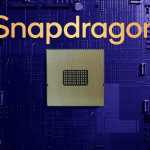
Aboriginal people from Wanggan and Yagalinggu country, located in south Queensland and northern NSW, can now study their traditional language online.
The Wirdi language interactive dictionary was established by traditional owners to safeguard the culture by passing on their language to current and future generations.
“Our traditional language was spoken by our ancestors for millennia, before the impact of colonisation on our people and culture,” language project manager Sharon Ford said.
“This project is to ensure that once again our children and grandchildren, and those that follow, will hold our true identity and continue to speak our original language.”
Wirdi is very different to English with a different sentence structure and sounds, the wirdi.com.au website says.
Some Wirdi words can mean several English words together such as “narrga” which means “a long time ago”, and “dilayngan” which means “first-born daughter”.
Aboriginal languages are mostly oral only, so for language study, Wirdi words are written in the Roman alphabet.
But for exact pronunciation, learners can click on each word to hear it spoken.
There are filmed explanations of key sounds like the “ng” sound in “tongue”, which in Wirdi can occur at the beginning of a word such as “ngala” meaning “asking a question”.
Ms Ford said the removal of her ancestors from their country and restrictions imposed on them to not speak their language had caused significant language loss among Wanggan and Yagalinggu people.
“Our language is our connection to our identity and what connects us to our country,” she said.
“And our country connects us to spirituality, culture and family.”
The online Wirdi dictionary was compiled by recovering recorded language from Wanggan and Yagalinggu and surrounding areas, transcribing written and audio records, and drawing on the vocabulary of remaining Wirdi speakers.
-AAP
The post Aboriginal Wirdi language goes online with interactive dictionary appeared first on The New Daily.
Powered by WPeMatico






